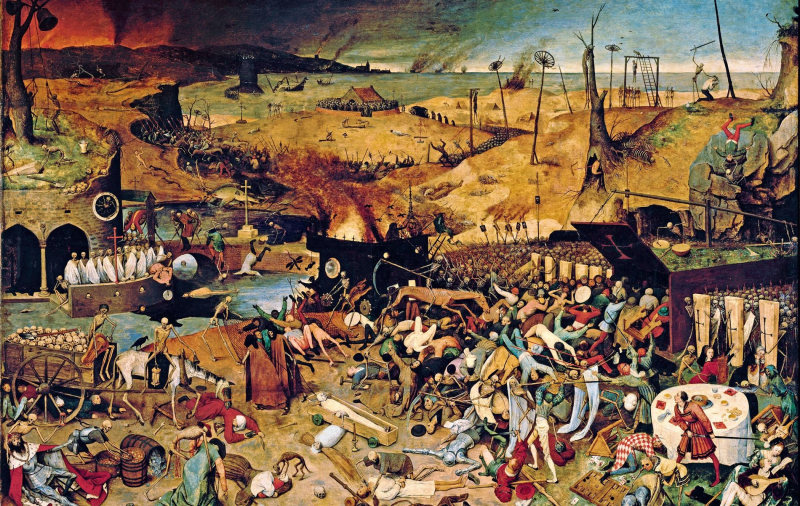1347

There's a reason the Black Death appears on practically every ranking of the world's worst events. Aside from the sheer quantity of human misery witnessed by those who survived the tragedy, the impact for the future was enormous. The pandemic shaped the modern world as people know it in numerous ways.
The Black Death, caused by the bubonic plague, which had previously killed millions and thrown huge regions of Europe into turmoil in the 6th century as the Justinian Plague, reappeared in Europe in 1348. While its origins on the continent are unknown, some research argues that it arrived by purposeful biological warfare launched by the Mongols during the Siege of Caffa in 1346, resulting in the outbreak of plague in 1347.
While people may never know for certain, they do know that the plague had a devastating impact on the European population. According to some estimates, it killed approximately 50 million people, or around 60 percent of the continent's population at the time. That doesn't imply it was limited to Europe; there have been stories of the sickness decimating entire villages and towns in eastern countries such as Persia and China as well. However, due to the Mongol conquests that were raging across practically the whole continent of Asia and the Middle East at the time, documents from that era are sparse and mainly untrustworthy.
While the outbreak peaked at approximately six years, it wasn't totally over for many centuries, with isolated-yet-horrifying episodes of resurgence reported across Europe as late as the 17th century. The pandemic had a far-reaching impact on the continent's politics and social order, some of which may even be considered 'good' in retrospect. However, for those who observed it firsthand, it was one of, if not the, worst times in human history.










